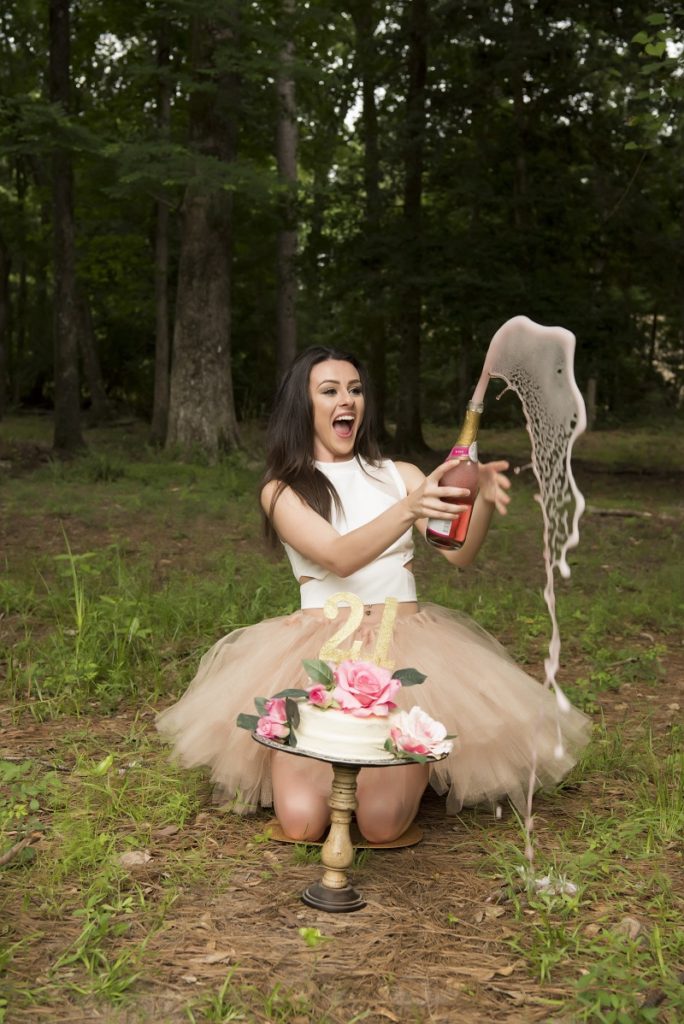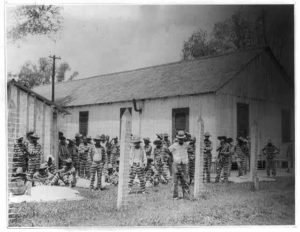I’m not sure I’ve ever understood forgiveness. Not in the way other people seem to understand it, at least. I consider myself to be a very empathetic person. I feel abundant mercy for others. I have range. If we’re talking about acceptance of others, I got you. I can meet you where you are. I can see the good in you. I am able to look beyond whatever you are on the outside. That’s not a problem for me. This is.
It’s difficult to have a discussion about forgiveness that does not naturally lead to religion. For most of us, religion was our introduction to the concept. A basic. Something not asked of us but commanded. Necessary to receive the forgiveness we, ourselves, need. Found, not only in the Judeo Christian faith but nearly every faith. Forgive your enemies, bless those who curse you. I can’t do it.
There is an equally deep secular concept of forgiveness – when it comes to healing from the wounds we sustain in our mortal journey. These wounds are inescapable in life. How do we move forward from them? How do we prevent these things from arresting our progress? How do we stay out of the tar pit of resentment and bitterness?
I’ve been thinking about this topic a lot this week. I have asked people I am close to what forgiveness means to them. Is there peace in our journey without it? Is it necessary? I spoke with Christians, non-Christian believers, and atheists. Of the people I spoke with, all but one took the stance that forgiveness was necessary to find peace. That it is imperative to free ourselves from negativity. The marked difference between believers and non-believers was the belief that divine help was available to achieve a state of forgiveness. And that, at times, the ability to forgive was granted them in a way that confirmed their belief. Those with a secular view realized, at some point, it was necessary for them to grow as people and move on from difficult situations. Upon this realization, they were able to do it.
I’ve had an anger problem my entire life. It’s probably not what you think, though. I have lived in terrible fear of my anger. Even in cases where anger was justified, I have frozen. My heart pounds and my head swims. I immediately launch into what is known as “fawn response.” We are all familiar with the term “fight or flight.” (The body’s physiological reaction to a perceived harmful event, attack, or threat to survival.) There are two more parts of this reaction – “freeze or fawn.” Freezing is like it sounds; you find yourself unable to move or act. Fawn is when you agree with your attacker to save yourself. I’m a “freeze or fawn” kind of person. Fawn is where I have landed, again and again, in situations where my anger should have come to my aid.
I have done almost anything in my life to swallow my anger. In situations where ‘fight’ was warranted, but ‘fawn’ showed up – my anger surfaces hours later when I am in solitude. I will then begin justifying it away; often finding a reason to blame myself for it. Perhaps I think of some point in my life when I lost my patience and lashed out. I might have caused another person to feel this way so it is a natural consequence of my own actions. Or, I had become too prideful in my life – my opinion of myself grandiose therefore I was being punished for this. It might have happened to teach me humility and, I can avoid this situation in the future by remaining humble. Or, perhaps a lesson in compassion – to test my will of loving people when they act unlovable. If I find myself unable to do this, naturally people will not love me either when I act unlovable. I don’t want that, do I? So I swallow it, take it on as my own ‘sin’ and call it forgiveness. Let it slide, give another chance, move on. It was too uncomfortable to deal with. It was too frightening to think of having to talk to whoever had angered me, and I avoided it by absorbing it.
I never felt free after these mental gymnastics. I didn’t feel like what others describe as forgiveness. I went on like it didn’t happen at all. I put it behind me. I held nobody accountable but myself.
Swallowing rage does terrible things to a person. I will tell you what it’s done to me. At the age of 18 I was given a copy of the book “The Dance of Anger” by Harriet Lerner. A staff member gave it to me during the time I was receiving in-patient care for an eating disorder. This was the first person who attempted to talk to me about ‘my anger problem’. It is, apparently, very common for those with eating disorders to try and hide their feelings, anger particularly. Internalize conflict. Avoid confrontation. Turn it inward, the resulting discord causing your entire focus to narrow to the one thing you can control. Food, weight, calories. A cry for help without having to say the words. A way to show your anger, that you have had it with life. Hurting those around you by hurting yourself. Instead of having difficult conversations that teach boundaries and show you are aware of your worth you instead cause these same people to lie awake at night worrying for your health. When it’s easier to participate in this covert vendetta than to speak the words, you know you have a problem with anger. And I did. I had a problem trying to swallow it. I also had a problem trying to throw it up. Although this didn’t work out for me long term, it didn’t stop me from trying.
Click here for information and symptoms of internalized anger.
Being the way I was made me a delightful target for toxic people. Narcissists. (Those who lack empathy and are unable to accept responsibility for the pain they cause.) Imagine the delight when one of these types of people locates a deeply feeling, empathetic person who will not push back on them. A person who will internalize their pain and not cry out. A person who basically says – it is ok to hurt me. I will hurt so you don’t have to.
Toxic individuals feel no shame deceiving you. They want what they want by any means necessary. As long as they can cause you to doubt yourself or others close to you, there is room for negotiation. There is ambivalence in causing you pain. They are unmoved by it. If you start to slip out of place, they are able to turn up the kindness or connection enough to retain you. These are people without conscience. They don’t have the same internal moral debates that you and I have. It is ok to deceive. It is ok to hurt. It is ok to manipulate. It is ok to use. It is ok to blame others. This situation ends in one of two ways. You escape and lock the door behind you – or – you outgrow your usefulness to them, and they move on.
Forgiveness should go here. It should, but it does not.
Sifting through the sum total of your traumas at age 50 is both a difficult and freeing thing. At surface level, it might appear as intent to cast blame on others for the problems you have faced in life. It becomes somewhat delicate when asking for further clarification on events that happened in childhood. Wanting to have a conversation about something that happened decades ago raises a flag that something took place which affected me later. What actually took place? What factors contributed to this situation?
I’ve divided the sum of my trauma in two ways. The first is by size. Although it defies logic, sometimes the smaller traumas have a longer reach than the larger ones. Having said that, single incident traumas are simpler to understand, as an adult. Someone said the wrong thing, someone did the wrong thing, someone pointed out a weakness you were sensitive to. It happened one time but stuck with you. Larger traumas/repeated traumas can be layered or dispursed. Think of traumas like a tumor. A smaller trauma is still cancer, but it is contained, hasn’t spread, can be cured with surgery and you can be on your way. Larger traumas are more like metastasized tumors. You might need radiation as well as surgery. Secondary tumors might have started growing elsewhere, in other organs. Where was the first one? How much has it spread? It takes longer to resolve. Can be harder to understand and process. In all cases, though – hey, you found the cancer, it can now be removed. No cancer is good. No trauma is good either.
The other way I have divided my traumas is by intent. Was my kindness used against me? Was this event pre-meditated? Was information purposefully withheld from me to persuade me into this situation? Was the harm done to me intentionally minimized or skewed to protect the other person? Was this a repetitive pattern with this person? Was the person conscious that they were causing me harm?
Trauma is impossible to avoid in life. We all have had it. Trauma is impossible to avoid in raising our children. The very nature of being human is that both good and bad things will happen to you and to everyone you love. You can make the absolute best decision you can for another person, take it very seriously and have it end up being not the best thing for them in the end. Intent to harm makes a big difference, sifting through things at age 50.
I have an example of this from my own experience as a mother. The school district where we raised our children had an accelerated program, a “gifted” program. Every child in the school district was screened at the end of their Kindergarten year. Only 25 children were extended the choice to join this program. Accepting meant a more challenging path (for instance Science Fair was required, not optional) and moving schools. Not accepting meant your child would not be extended another opportunity. The only openings for each grade were when a child in this program could not maintain grades and was removed.
Our oldest child was extended an invitation to this program. I really suffered over making this decision. What I needed was information that I couldn’t have. How was my child going to be with school as they got older? Was it better to be too challenged or not challenged enough? What would they want for themselves? Would they be angry later if I passed up this opportunity for them? Would it cause them to feel I didn’t believe they could do it? What if they were not able to hold the grades? What were the ramifications of stepping down from the program and returning to the school where they attended Kindergarten?
After weighing all these things I accepted the invitation. Our second child started school. I went through this all again – what if my children are going to different schools, is it going to make the younger one feel less good about themselves, will their be rivalry? On and on. Our second child also tested in, I had an easier time accepting this invitation because I was already involved with the program at the new school.
Do you know what? In the end, it was the wrong choice. For both children. In the end, it caused more harm than good. It wasn’t the program, it wasn’t the teachers. It was just not the right choice for either child. Our children are grown now. They carry the ramifications of this decision. I can’t undo it, of course. All I can tell them is – I made the best decision I could with the information I had at that time. And that was the truth. Not the right decision for either one, in the end. There was absolutely no intent to harm them on my part. There was absolutely no ego on my part, in having children in this program. It truly was just a case of – I made the best decision I could then.
So yeah, I’m not holding any grudge against my parents for incidents that occurred while I was under their care. They did the absolute best they could. Their intent was always my health and safety. Although these formative years are the ones that shape us, there is no blame, there is no grievance against my parents – for anything. I don’t consider this forgiveness because there is nothing to forgive here. Let us all just hope our children know we did the best we could for them. Let us also hope we can know this about ourselves, as well.

Through these steps of sifting through the traumas in my life, most of them blew away on the breeze. Being able to see them with adult eyes – you know what – most of them were just unfortunate timing. There was no intent to harm me. The wrong thing was said, a sensitive subject was raised, I was embarrassed by something innocently said, some adult raised their voice to me not knowing I was a sensitive kid. My peers were children, teenagers and then adults. As we learned better we did better. Almost effortlessly, most of these things floated away from me.
What’s left? Those who knowingly deceived, used, and harmed you. Those who showed no remorse when you were hurt. Those who allowed you to take the fall for their actions and walked away. What do you do about those who intended to harm you and succeeded? What do you do in the absence of justice?
We find ourselves, again, at the place where forgiveness should go. This mysterious concept that I struggle to understand. The thing I am told is for my benefit, not for those who harmed me.
Here is a point where the religious crowd and secular crowd part ways. Justice. That it will be made right. That the winds of karma will visit upon them with the exact same pain you felt at that time. That there is a God who will remember what was done. Perhaps you can relax a bit, with the knowledge that it’s not the final word.
In the absence of this, how do you accept that another person hurt you and will never have to answer for it? I have had these conversations with atheists who were as able to forgive as believers. It’s just me, maybe. It’s just me who feels I’m the only one who remembers. And if I let it go, that means nobody remembers. Nobody will say – it is not ok to hurt me.
There is a saying – “refusing to forgive someone is like drinking poison and waiting for the other person to die.” It doesn’t feel like poison to me, if I’m being honest.
Do you know what does feel like drinking poison, though? The anger that you swallow. The blame you accept that wasn’t yours. The apologies you make for the ways you reacted when you were harmed. The ways you justify the cruelty – it was my fault for trusting. It was my fault for loving. I’m so stupid for believing. I got exactly what I deserve.
These are the things I have spent a great deal of my life drinking. I assure you, I didn’t do that expecting the other person to die.
I don’t know of any other 50-year-olds who have a written list of people they don’t forgive. I do. There are 10 people on that list. People who will never have access to me again. It is not ok to hurt me. I do not apologize for the way I reacted. It feels like justice, to me.

I’ve never allowed myself to feel this before – anger. It feels like hedonism, it tastes of cake and champagne, of crowns, and big tulle skirts. Look at me, everybody! I’m MAD!!!! I’M SO MAD!! I’M MAD AND YOU DESERVE IT. YOU ARE A TERRIBLE PERSON! I DON’T FORGIVE YOU! EVERYONE HATES YOU! WOOHOOOOO!!!!
(I do not know the lady in the picture but she looks like I feel being angry lately. I’m mad! I’m mad!)
I have realized the reason I haven’t been able to understand forgiveness is because I have never allowed myself to feel anger towards others. I have always turned that anger on myself. Out of fear. Out of the toxic beliefs I held about myself. The fact that I even can be angry towards those who intentionally harmed me is a sign of how much I have grown. How much I have healed. A miraculous sign that I am moving forward. You can’t surrender anger that you’ve never allowed yourself to feel in the first place.
Might I eventually reach an understanding of this mysterious concept? Absolutely. The ways others describe it, it is a freeing feeling. I cannot get there , though, without first stopping here. Letting those who deserve it hold it for a while instead of myself.
I have come to the conclusion that I am right where I need to be right now. Mad as hell, horns and rattles, spitting fire, all flame, mad as a wet hen!
It feels amazing, to me.

